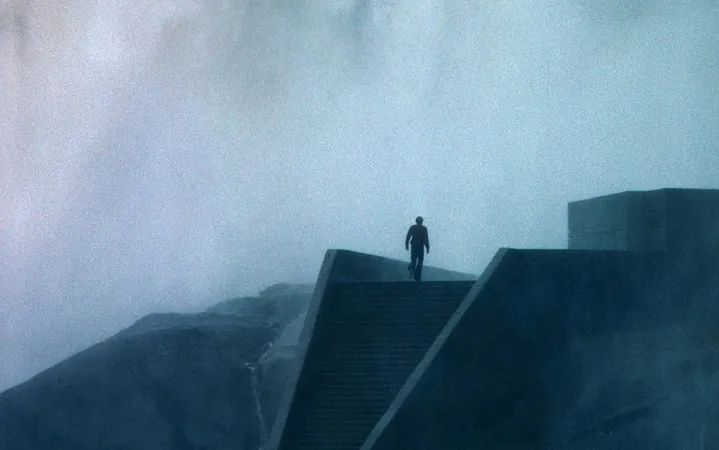
The Great Debate: Nature’s Laws as Recipes or News Reports?
2024-11-14
Author: Charlotte
Every sunrise brings with it a promise of continuity; water boiling at 100°C, falling apples, and the overarching consistency of our physical universe suggest that we live within a uniquely stable system. Imagine, for a moment, a chaotic world where the sun rises unpredictably, water boils at fluctuating temperatures, and apples might levitate! Such volatility would leave us unable to harness nature for our daily lives. Our understanding of nature’s laws underpins this stability, providing the backbone for advancement and predictability.
Typically, we assume that science reveals these laws and sheds light on their underlying structure, functioning as a kind of recipe that helps us understand the universe's behavior. This understanding dates back to philosophers like René Descartes and Isaac Newton, who recognized a deterministic universe where laws predict outcomes based on initial states—often illustrated by the layer-cake model of reality.
Newton’s law of gravitation allows us to calculate the future movements of celestial bodies using their current positions. This powerful framework has unified various fields of physics, yet modern challenges have emerged that suggest our foundational concepts may be overly simplistic. Notably, Albert Einstein’s theory of general relativity disrupted this model, presenting a different narrative about how physics and time operate. It illustrates that spacetime itself shapes the universe's dynamics, contradicting the linear predictability of the layer cake.
The rise of new theories, particularly in quantum mechanics, has spawned even more radical ideas about how time and causality might work. Concepts like retrocausality—where future states affect past events—defy traditional cause-and-effect reasoning and challenge the layer-cake model’s validity. For instance, the Lagrangian formulation of motion suggests a scenario where future positions can influence previous trajectories, hinting at a level of interconnectivity that we don’t yet understand.
Philosophers like David Lewis have proposed alternative views that liken the laws of nature to newspaper articles, merely summarizing observed behavior rather than exerting genuine influence. This “newspaper model” is appealing because it removes the metaphysical baggage of causal relationships. However, as interesting as this notion is, it leads to significant questions about how and why the laws of nature consistently manifest in the same ways despite an absence of direct causation.
Remarkably, while the newspaper model offers a simpler perspective, it neglects the fundamental observation that the same patterns recur—like the seasonal cycle of harvest or the predictability of gravity—suggesting that a deeper connection within the universe must exist. While each model contributes to the discourse, they all struggle to adequately explain the underlying "glue" that maintains our universe's regularities across time.
Recent discussions in philosophy have led to the development of the “straitjacket model”, which posits that laws constrain possible outcomes without introducing a temporal flow of causation. This model attempts to reconcile insights from both the layer-cake and newspaper frameworks, offering a more comprehensive view of how laws function while acknowledging the limitations each model faces.
Despite advances in physics, the debate surrounding nature’s laws continues. As we strive for understanding, perhaps the truth lies not in a single overarching model but rather in a nuanced approach that recognizes the value of differentiated perspectives for varied circumstances. This could ultimately lend credence to the belief that behind the apparent chaos, there lies a deeper, intertwined order—where the simplest explanations can lead to profound insights about our world.
As science evolves, so must our exploration of these theories, pushing us closer to unlocking the intricacies of how our universe really works. The quest for understanding nature's laws thus stands not only as an intellectual pursuit but as a vital cornerstone for humanity's future advancements.









 Brasil (PT)
Brasil (PT)
 Canada (EN)
Canada (EN)
 Chile (ES)
Chile (ES)
 España (ES)
España (ES)
 France (FR)
France (FR)
 Hong Kong (EN)
Hong Kong (EN)
 Italia (IT)
Italia (IT)
 日本 (JA)
日本 (JA)
 Magyarország (HU)
Magyarország (HU)
 Norge (NO)
Norge (NO)
 Polska (PL)
Polska (PL)
 Schweiz (DE)
Schweiz (DE)
 Singapore (EN)
Singapore (EN)
 Sverige (SV)
Sverige (SV)
 Suomi (FI)
Suomi (FI)
 Türkiye (TR)
Türkiye (TR)